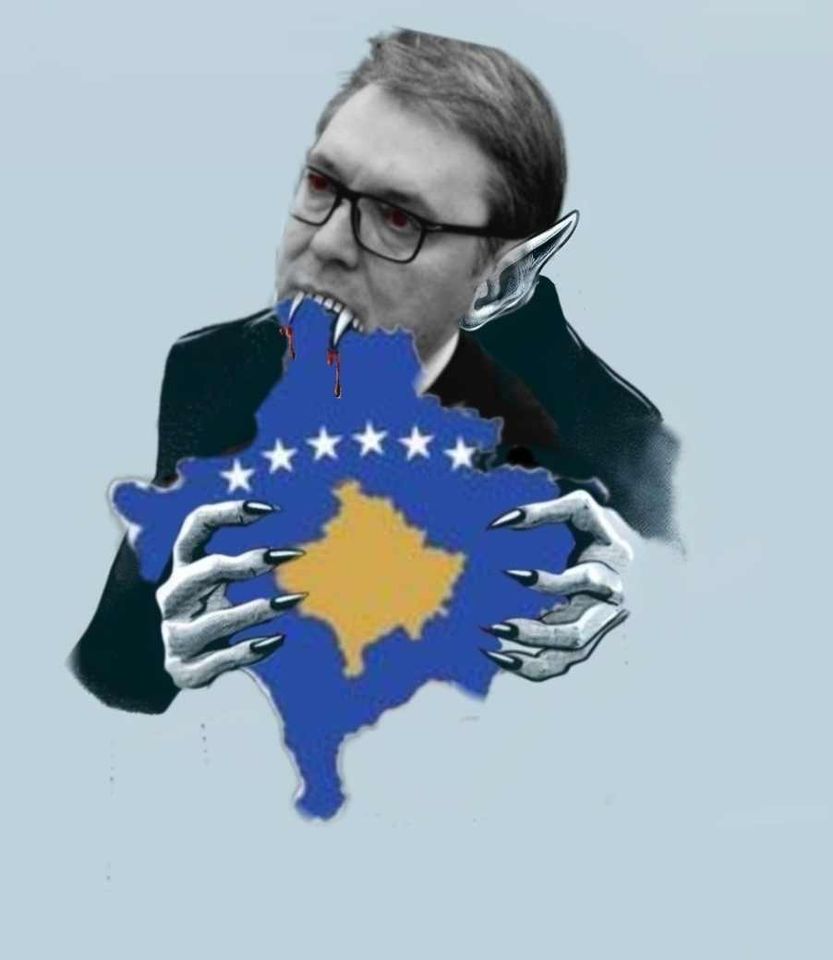n Serbia’s parliamentary elections, President Vučić’s victory amidst vote-rigging claims raises tensions. The EU’s response to these allegations and regional dynamics is under scrutiny.
Thank you for reading this post, don't forget to subscribe!DEC 19 -2023
Serbia’s recent elections, marked by allegations of fraud and vote-rigging, have intensified regional tensions, challenging the EU’s response to President Vučić’s contentious victory amid deepening Balkan political complexities. – Vudi Xhymshiti
In Serbia, the recent parliamentary elections have brought to the forefront a series of deep-seated political and regional tensions, magnified by allegations of electoral irregularities and vote-rigging. The ruling populist party, led by President Aleksandar Vučić, a figure with a contentious history linked to the Milosevic regime, claimed a decisive victory. This development has raised eyebrows not only within Serbia but also in the European Union, considering Serbia’s status as a candidate country since 2014.
The journey of Serbia towards EU candidacy has been fraught with complexities. It has been a balancing act, negotiating between its regional allegiances and the broader aspirations of aligning with the European Union. The recent elections have put a spotlight on the internal political dynamics of the country, raising questions about the commitment to democratic processes, media freedom, and the rule of law.
The election results, as reported, indicate a sweeping victory for Vučić’s Serbian Progressive party, which garnered around 47% of the parliamentary vote. However, these results have been marred by controversies. The opposition, notably the Serbia Against Violence alliance, has refused to recognize the results, citing allegations of widespread irregularities. They claim that the electoral process was compromised, pointing to instances of fraud and manipulation.
Among the notable allegations were reports of busing in ethnic Serbs from neighboring Bosnia to vote in Belgrade and the issuance of around 40,000 identity documents to non-residents of the capital. These claims were supported by various election monitors and independent media reports. Furthermore, there were disturbing reports of a monitoring team being assaulted and their vehicle attacked in northern Serbia.
The opposition’s response has been vehement. They have called for legal action to defend what they see as the true democratic will of the people. Marinika Tepić, a prominent opposition politician, has been vocal in criticizing what she describes as a ‘hyperproduction of voters’ who do not reside in Serbia, terming it a blatant abuse of law. The opposition’s stance is firm – they demand a rerun of the Belgrade local election and have organized street protests to voice their discontent.
This electoral controversy does not exist in a vacuum. It is reflective of broader regional dynamics and Serbia’s intricate relationship with the EU and Russia. Serbia’s alignment with Kremlin’s foreign policies, especially after a treaty that seemed to sync its foreign policies with those of Moscow, has been a point of contention in its EU accession talks. Critics argue that the EU’s approach towards Serbia has inadvertently enabled what they see as a destructive role of Serbia in Balkan security matters.
Moreover, the situation in southern Serbia has drawn international attention, particularly regarding the treatment of ethnic Albanians. The administration’s nullification of addresses in this region has been condemned by organizations like the Helsinki Committee on Human Rights and the Belgrade Based Youth Initiative for Human Rights, who view these actions as akin to ethnic cleansing.
The current political landscape in Serbia is a complex tapestry of historical legacies, regional geopolitics, and the aspirations of a nation at the crossroads of East and West. As Serbia navigates its path forward, the implications of these elections and the responses to them will be closely watched, both within the country and by the international community, especially the European Union. The unfolding events will be critical in determining Serbia’s future course, both in its internal political arena and in its external relations, particularly with the EU.
The unfolding political drama in Serbia, and its implications for the region and its relationship with the European Union, raise serious questions about the role and efficacy of the EU’s current leadership. Despite multiple violations of international treaties by Serbia under President Vučić’s administration, there has been a notable lack of accountability from the EU. Prime Minister Ana Brnabić’s recent declarations that Serbia will not honor agreements signed with Kosovo, and President Vučić’s alleged support for training and arming militia groups reminiscent of Russian-style “green men,” only exacerbate these concerns. These groups, accused of using Serbian Orthodox churches as weapon depots and launching aggressive actions in Kosovo, including an attempt to declare a Republic of Serbia within Kosovo’s territory, have further destabilized the region. The incident in September, where a Kosovar police officer was killed during an incursion by these militias into Kosovo’s north, highlights the gravity of the situation. This series of events underscores a growing frustration with the EU’s leadership, perceived as lacking the resolve to effectively address such critical and complex international issues, leaving a region fraught with tension and uncertainty.


Shënim:
Redaksia, diplomacia. dk nuk e merr përgjegjësinë për pikëpamjet e autorit në shkrimin e botuar!
Respekt!
